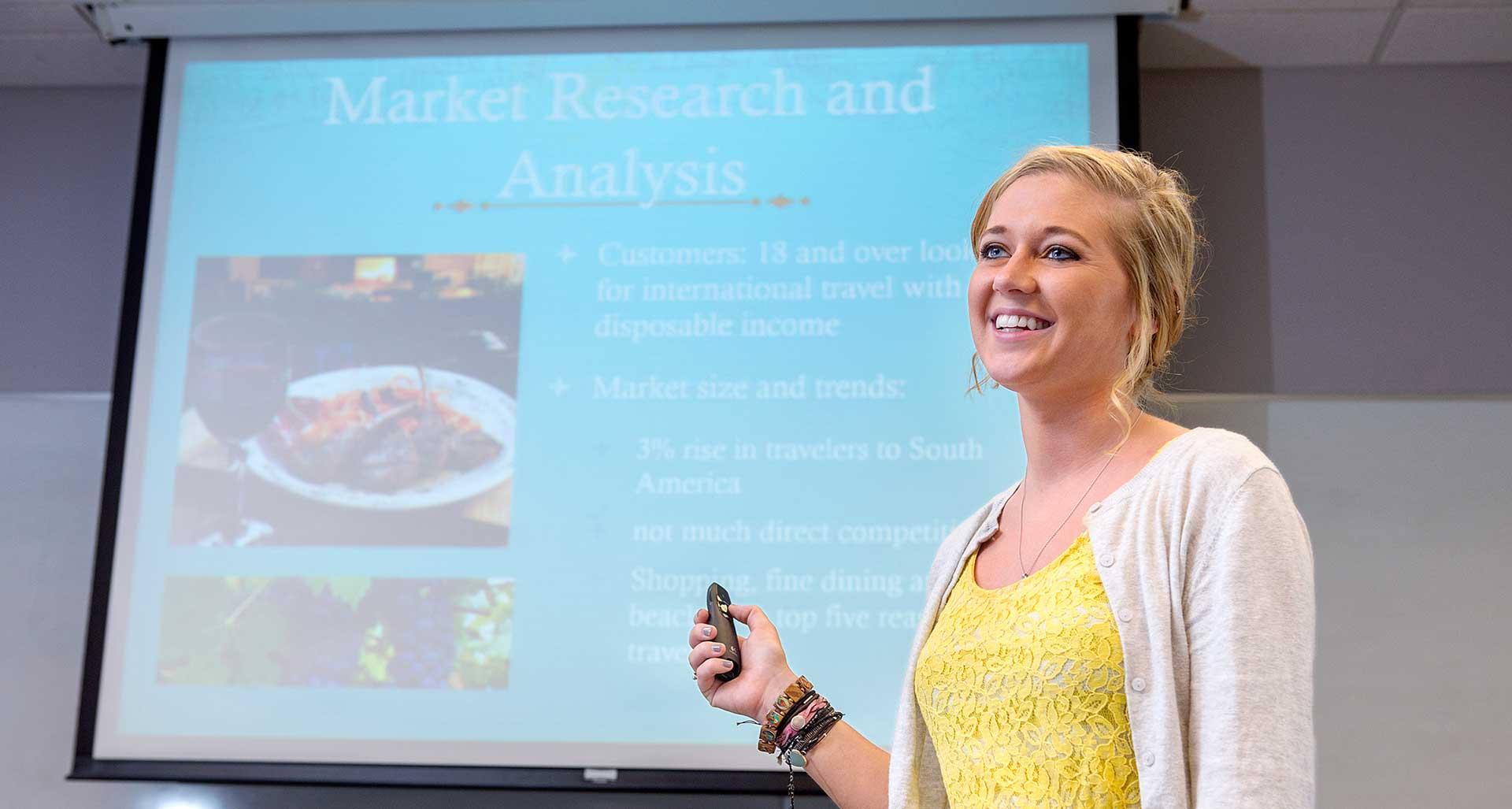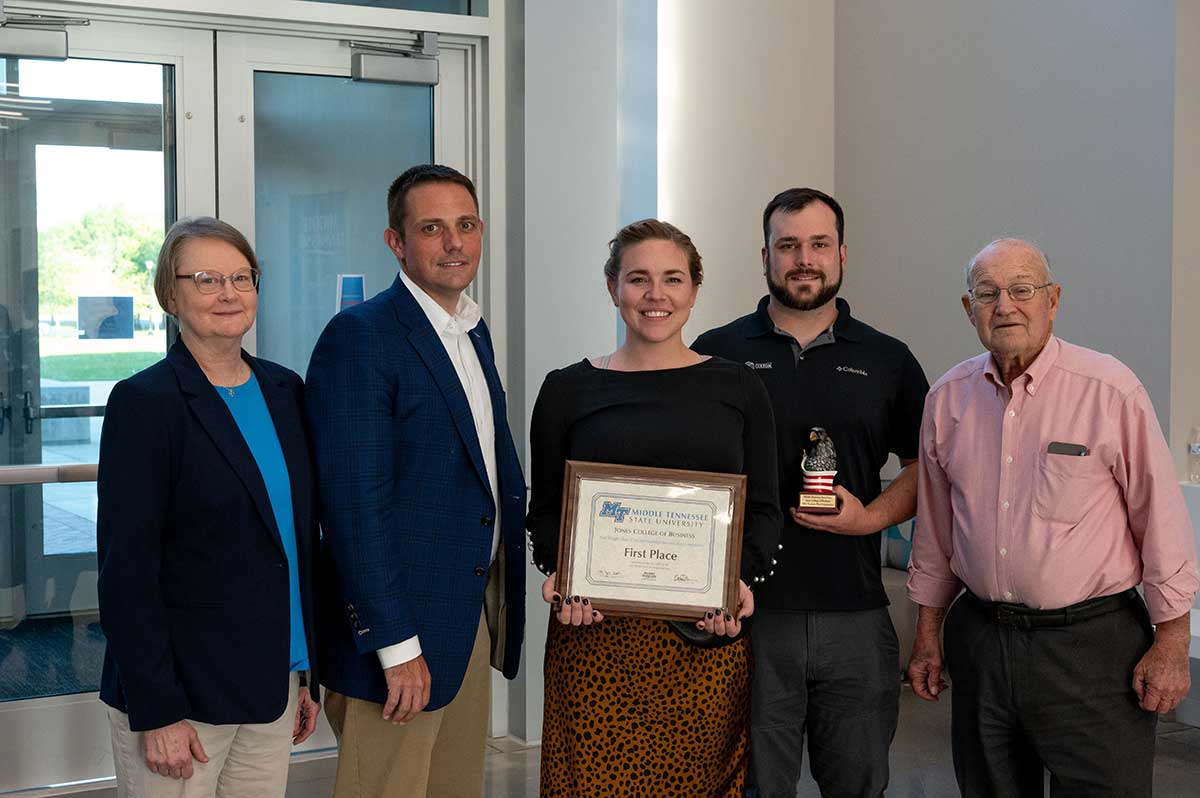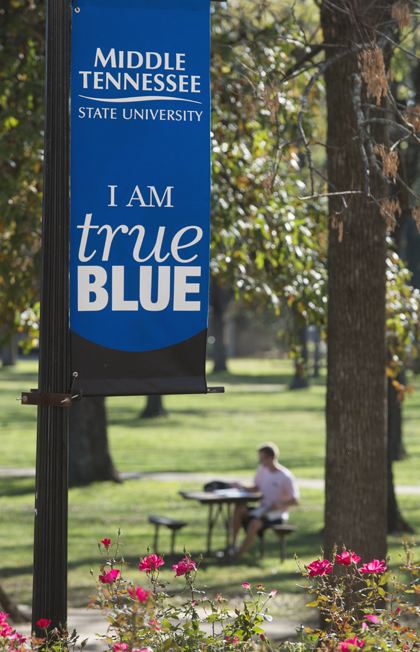
Business Innovation and Entrepreneurship
Gain essential skills, mentorship, and real-world experience for entrepreneurial success.
Business Innovation and Entrepreneurship, B.B.A.
The curriculum in MTSU's Business Innovation and Entrepreneurship program is flexible and allows students to tailor the program to fit specific needs while acquiring the business background necessary for pursuing entrepreneurial goals.
Successful business professionals contribute to the program and an advisory board of recognized entrepreneurial leaders mentors students. Specialized courses, an internship, and interaction with acknowledged business leaders will provide the impetus to start and operate a successful business.
News Briefs

A travel plan to the top
Pam Wright (B.S. '73) embarked on her entrepreneurial adventure in 1981 when she opened Wright Travel Agency in Nashville. Today Wright Travel boasts 28 locations in seven states with annual sales of $128 million. In 2007, Pam pledged $1.25 million to MTSU to establish the Pam Wright Endowed Chair in Entrepreneurship. She is a member of the 2009 class of Tennessee's "Women of Influence" and an MTSU Distinguished Alumna.

Business Plan Competition awards thousands to aspiring entrepreneurs
Each year the Jones College of Business hosts the Business Plan Competition, which awards over $27,000 in prize money to aspiring entrepreneurs. Prominent early-stage company investors, entrepreneurs and business leaders from the Middle Tennessee area judge presentations by the finalists. It is designed to help students and alumni in launching new business ventures, including for-profit businesses, not-for-profit businesses, corporate entrepreneurship, and social enterprise.
News Briefs
A travel plan to the top

Pam Wright (B.S. '73) embarked on her entrepreneurial adventure in 1981 when she opened Wright Travel Agency in Nashville. Today Wright Travel boasts 28 locations in seven states with annual sales of $128 million. In 2007, Pam pledged $1.25 million to MTSU to establish the Pam Wright Endowed Chair in Entrepreneurship. She is a member of the 2009 class of Tennessee's "Women of Influence" and an MTSU Distinguished Alumna.
Business Plan Competition awards thousands to aspiring entrepreneurs

Each year the Jones College of Business hosts the Business Plan Competition, which awards over $27,000 in prize money to aspiring entrepreneurs. Prominent early-stage company investors, entrepreneurs and business leaders from the Middle Tennessee area judge presentations by the finalists. It is designed to help students and alumni in launching new business ventures, including for-profit businesses, not-for-profit businesses, corporate entrepreneurship, and social enterprise.
Related Media

Due to the dual focus on business development and business ownership, MTSU alumni hold positions that include, among many others:
- CEO
- Manager
- Company founder
- President
- Product design
- Product manufacturer
- Sales specialist
Employers of MTSU alumni include:
- Disney
- Enterprise
- Nashville Predators
- Rutherford County government
- Sherwin-Williams
- St. Jude
- UPS
- Wright Travel



Mission
The Entrepreneurship Program's mission is to provide education about the roles and contributions of entrepreneurs in economic development and job creation and to foster the growth and development of entrepreneurship.
Program objectives Include:
- Encourage creativity and innovation.
- Prepare students for successful venture creation and implementation.
- Provide opportunities for students to gain knowledge required for startup and successful operation.
- Help students create "real" business plans.
- Facilitate networking for students to meet and learn from local, regional, and national entrepreneurs.
- Introduce students to the expertise of Small Business Development Centers.
- Encourage student participation in national and global entrepreneurship celebrations.
- Give students opportunities to participate in the Collegiate Entrepreneurs' Organization (CEO).
Resources

CONTACT US

Please fill in the form below and we will contact you very soon
















